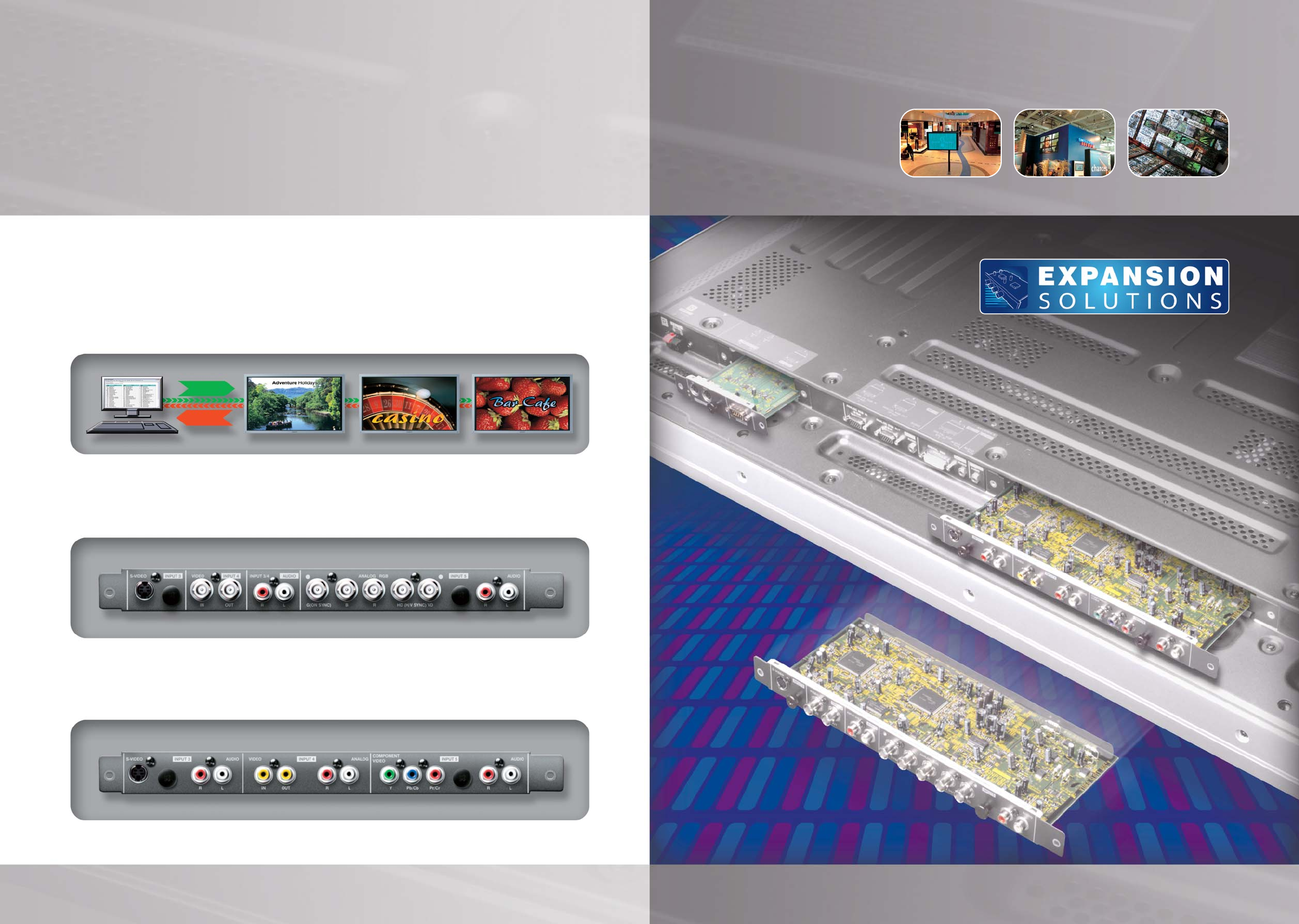
Expansion Solutions
Pioneer plasma displays provide unparalleled connectivity. In
addition to the standard 15 Pin D-sub and DVI-D connector the
displays include two open architecture expansion slots. One slot
is dedicated for signal input with two optional Pioneer expansion
cards available to handle all of the major video signals. The
second is a unique communications slot that includes an RS-232C
expansion card as standard. With their open architecture, these
slots enable interchangeable cards to be designed by third party
developers to handle all current and future analogue, digital and
communications signals. They also provide the flexibility for
systems integrators to design plasma installations to customers’
exact specifications.
The standard RS-232C card supports
operation from a remote PC or control
systems, typically used in corporate and public
display environments. The interface offers bi-
directional control so that displays can be
linked together and controlled individually
PDA-5004
PDA-5003
*NOTE. Only use cards designed or approved by Pioneer.
RS-232C Commands
from a central point - monitoring what input
is being shown and how the displays are
operating.
The RS-232C card can be interchanged with
a potentially limitless array range of expansion
solutions that can be designed for the
communications slot. It is designed for signals
that include IEEE1394, USB, Ethernet, and
Web-Servers but can accommodate any other
source that developers design cards for to
greatly extend the application capabilities of
plasma displays.
The PDA-5003 expansion card includes
1 x S-Video (Y/C), 2 x BNC composite video
(IN/OUT), 2 x RCA audio inputs (L/R) and
5 x BNC terminals to receive both component
and analogue RGB. The card is designed for
digital signage, information display, video and
broadcast applications - where more robust
cable connection is required. Applications
include the display of promotion content at
exhibitions, video clips in entertainment
complexes and advertisements in terminals,
public installations and retail premises.
The PDA-5004 video expansion card is
designed with presentation applications in
mind. In line with the RCA connections used
by office and consumer devices, the card
offers 1 x S-Video (Y/C), 1 x RCA composite,
3 x RCA component input connectivity and
1 x RCA composite output. Three audio
inputs are provided by RCA (L/R).
The card will support education applications
as well as the display of corporate video in
public areas.
Using an embedded expansion card in
place of an extended solution can
drastically cut down on the infrastructure
needed to support any installation. This
will reduce cost and increase reliability
thus limiting potential downtime.










